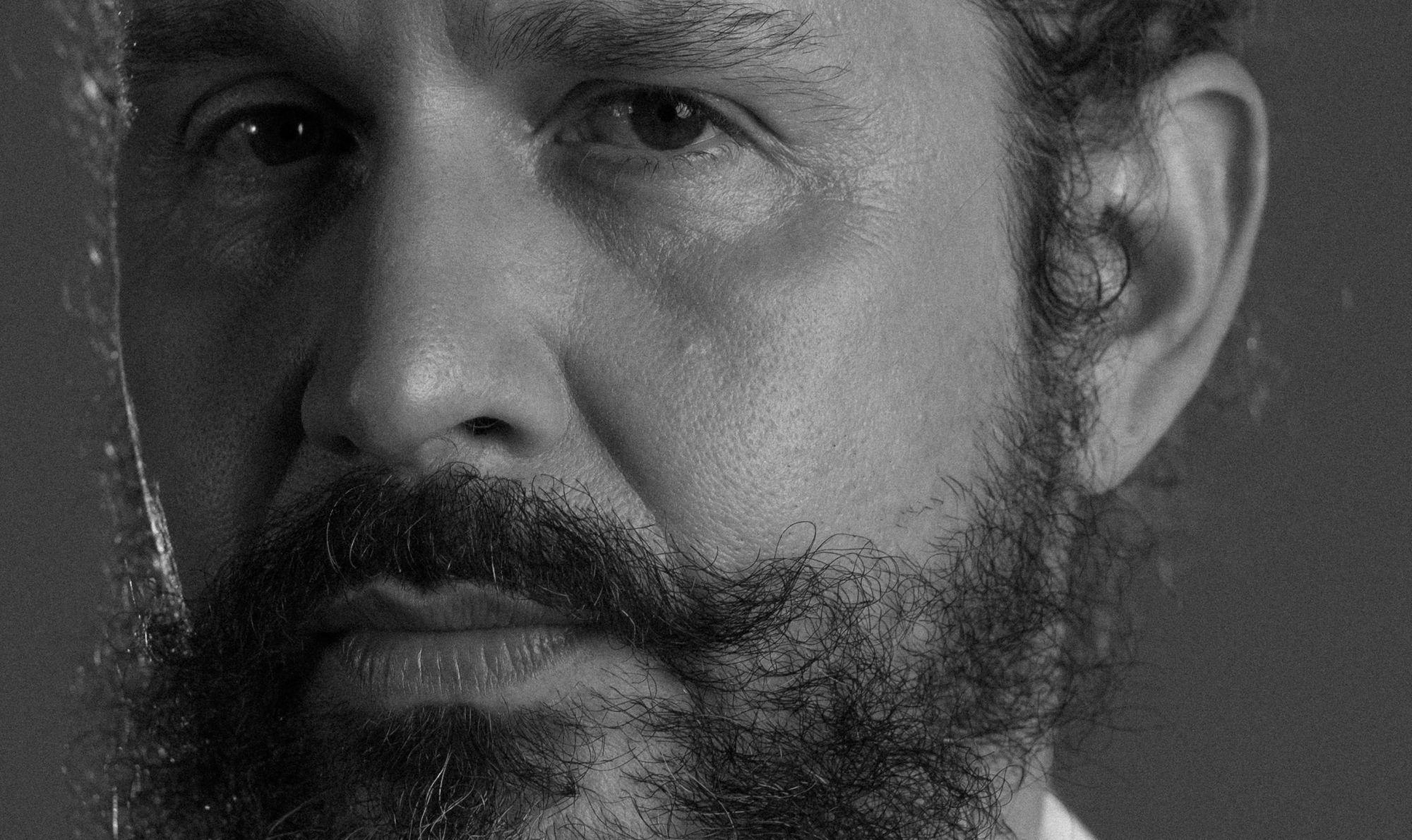An Interview with Director Aly Muritiba
“When I decided to make this film in 2019, I was tired of the hate. I was tired of hating and being hated, so I decided to bet on love” says Brazilian director Aly Muritiba on his fifth feature film Private Desert (Deserto Particular), which is a triumphant affirmation of queer love at a moment when queer rights are increasingly under threat in Brazil and other parts of the world.
Winner of the People’s Choice Award at Venice International Film Festival and Brazil’s official submission to the International Feature category at the 94th Academy Awards last year, Private Desert is also a road movie that travels from the South to the Northeast of Brazil, and sets in the cultural differences and behaviors these regions have.
Muritiba first gained recognition for his 2011 short film A Factory that made the shortlist for the Academy Awards in the category for best live-action short. He has directed five feature films including Rust and Jesus Kid, and his work has screened at some of the most prestigious film festivals including Cannes Critics’ Week, Sundance, Venice, and San Sebastian, winning over 200 awards internationally. Additionally, Muritiba has directed for television and major streaming platforms.
Brazzil Magazine spoke with Muritiba to get a better picture of Brazil’s cultural, social, and regional scene and to better understand the nuances of Private Desert. The movie claims to be a response to the political division now faced by the country, an attempt to change the dialogue from hate to love.
Brazzil Magazine (BM): What does the name “Private Desert” refer to, for both the narrative and expanded context of Brazil?
Aly Muritiba (AM): The film starts from the particular to get to the general. Private Desert says a lot about these characters’ loneliness during most of their trajectory. The main character, Daniel, is a military policeman, son of a military policeman, grandson of an army officer, who grew up in a family whose values were the code of hierarchy. Man’s voice in this patriarchal environment is only the voice of strength and virility; they do not have the right to express weaknesses and emotions.
In Daniel’s case, I’m talking about a very sensitive man who was grown in a tough environment where he needed it constantly to perform this hardness, which generates loneliness. I was raised within this patriarchal logic that I shouldn’t show my emotions, and it was my duty to subjugate the weaker ones. So, I am talking about Daniel, but I am also talking about a large portion of men here in Brazil.
On the other hand, with Sara/Robson, I’m talking about a part of the population that is constantly oppressed and silenced, the queer community. I’m also referring to a massive amount of the Brazilian people, the evangelical, about which we talk very little. 33% of the Brazilian population are believers, Christians, Pentecostal and non-Pentecostal, and these people are there, existing, voting, and moving the economy. We don’t talk about them in Brazilian cinema enough.
The film starts in a private environment, including many scenes inside the house, and progressively, the characters begin to enter the public sphere. The film begins inside the house and ends in a bus station, a place of movement. So the film starts with these two lonely people who will realize that beauty can be born from a shared experience, from contact with another.
BM: Daniel uses the word ‘incident’ when he describes when he brutalized a police cadet. Talk more about the character’s insistence to use this word to talk about his abuse of power.
AM: You can see that he feels guilty, but you can also see that he doesn’t recognize his responsibility to others. Then he uses the same excuse as ex-Minister of Justice, Sergio Moro, when he tried to implement the so-called “excluder of illegality.” That would have changed the law to give any policeman the right to justify their actions, regardless of what they did, killing whoever they kill or beating whoever they brutalized. Fortunately, that didn’t pass because it would be a license to kill. But the police already operate in practice using this concept of exclusion of lawfulness, they are trained in the logic that we are at a war, and you have the right to kill when you are at a war.
Military training—a pity that our police are still military in Brazil, a remnant of the dictatorship—is a training in which contestation is impossible. If you dare to think, or protest, you will be suspended, you can be arrested. I was a military fireman for a while and was arrested constantly because I disagreed with some orders. Daniel’s character as an instructor at the military academy means that his job is to teach that military culture. So, probably the recruit that was beaten because he questioned something. Daniel went to violence because it was the natural way to respond. After all, he was taught to act violently. He claims it was an incident or accident because that is how the military forces operate in Brazil.
BM: Brazil is an extremely intolerant and violent country regarding the queer community, the most dangerous country for trans people 12 years in a row. Talk about your choice to represent queer love with a main character who identifies as heterosexual?
AM: If Daniel weren’t a staunch heterosexual and conservative, there would be no transformation in the film, and there would be no point in making it. I believe in the transformative power of affections and love. In the 2018 election for president, I pushed everyone away. All my conservative relatives started hating me, and many of them hate me to this day because I acted in an angry, intolerant way. I was pointing the finger at them, trying to make them see what was obvious to me without putting myself in their place. Without realizing that what was obvious to me was not obvious at all, for them, the obvious was the opposite of what I thought I thought was obvious. In this way, I didn’t change anything; no one changed their vote for Bolsonaro, and he got elected.
When I decided to make this film in 2019, I was tired of the hate. I was tired of hating and being hated, so I decided to bet on love. I was curious to think what would have happened if someone offer an imaginary ultra-conservative cousin of mine a listening ear, maybe this conservative cousin of mine would come to like the person listening to him and develop a loving relationship, sexually or otherwise. What if, after a long time of establishing this speaking and listening relationship, my conservative cousin found out that he spent all this time talking to a man? Would he stop liking this person? I don’t think so. So I was interested in exploring that.
BM: Can you share Brazilian films that were references for you to do this film?
AM: Suely in the Sky from Karim Aïnouz, and Lower City from Sérgio Machado, including an excerpt from the film appear in Private Desert. In the first scene, when Daniel arrives from the race; there, I pay homage to Machado.
Private Desert is now playing at the Quad Cinema in New York City and opens September 9 at the Laemmle Theatres in Los Angeles, followed by other U.S. cities.











